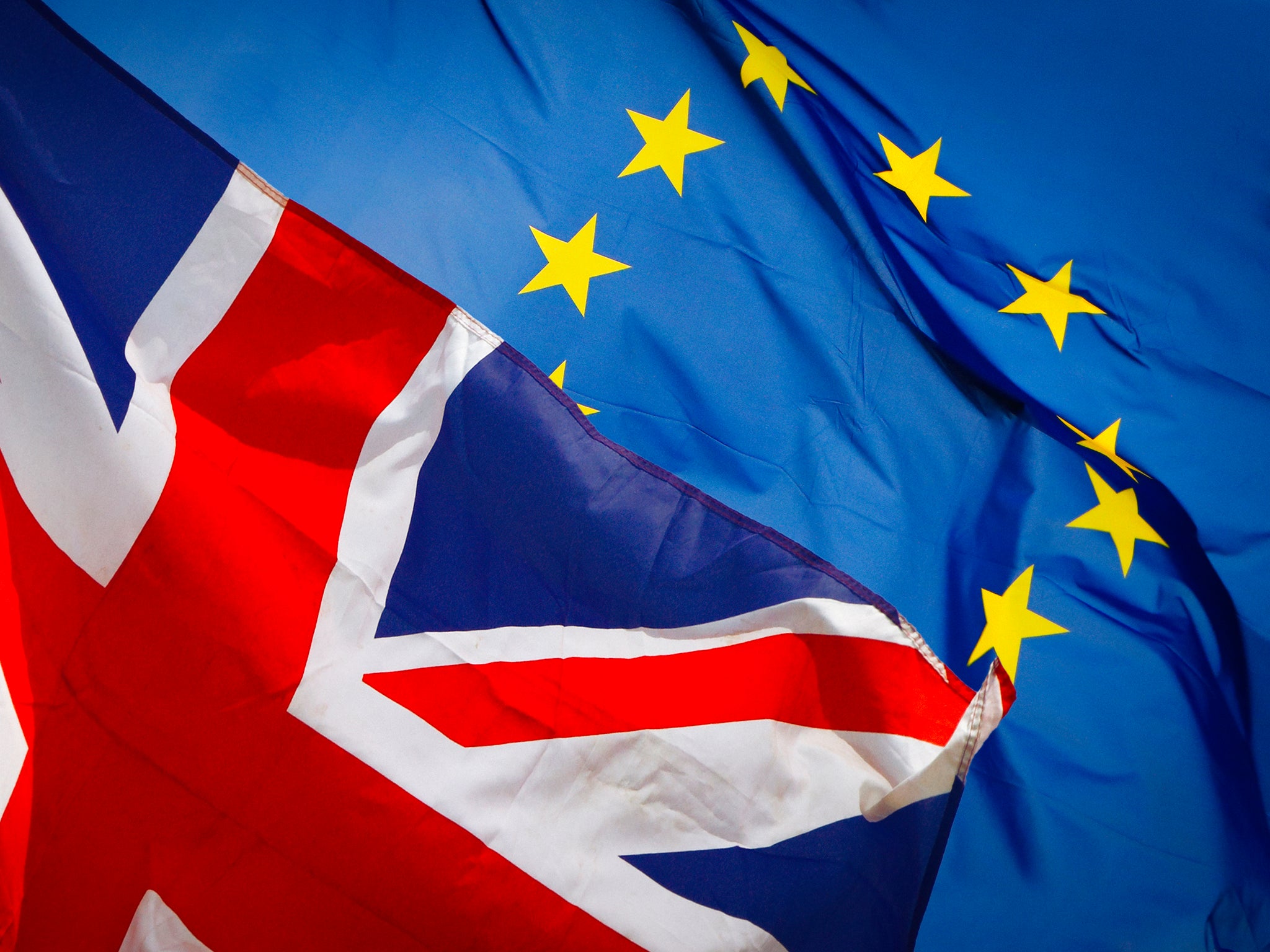Are the Brexit talks breaking down?
A technical matter regarding the Irish Sea border threatens to unravel negotiations, writes Sean O'Grady


Obviously we all have bigger things to worry about than the future relationship between Britain and the European Union, but the world is still turning. Or not, in the case of progressing the talks between London and Brussels. Though no one is taking much notice, Brexit remains far from “done” – and things are going backwards.
Despite the absence from the scene of Boris Johnson and Michel Barnier, the chief EU negotiator, because of Covid, and despite the novelty of video meetings in virtual conference rooms, there have been some discussions among the various participants, legal texts exchanged and the odd optimistic noise can be heard.
Yet there are ominous signs emerging that even the existing UK-EU Withdrawal Agreement, signed after much trauma last October and since ratified, might now unravel. An apparently innocuous technical note has just been issued by the European Commission, laying out the scale of the work that needs to be done to make the complex Ireland/Northern Ireland protocol of the Withdrawal Agreement work in practice.
This, you may recall, was needed because the two sides agreed to an “economic border” down the Irish Sea, in preference to one on the island of Ireland itself, for practical and political reasons. The British have always downplayed the significance of the customs controls that will need to be put in place between Northern Ireland and Great Britain. Boris Johnson has virtually denied the existence of any such arrangements. British ministers sometimes give the impression that they can ignore their commitments with impunity, especially given the return of absolute sovereignty.
On the other hand, as the Great Britain-Northern Ireland “border” will soon mark the frontier of the EU’s precious single market, the EU (especially member state Ireland) is rather more insistent and sensitive about it.
Now comes this worrying development. Unilaterally – not a promising sign – the EU has issued a “technical note” that states that work on IT systems and databases for customs checks and controls needs to be started by 1 June, in order to meet the 31 December deadline for the end of the transition period, ie when the UK no longer abides by EU rules.
The EU also wants an EU office in Belfast to be “advanced as a matter or urgency” – the so-called “mini embassy”. This is something that the British government has rejected as “not necessary” and “divisive in political and community terms” – code for the DUP rejecting it. The EU argues it is merely an office for vets and clerks, with no diplomatic functions or lavish receptions with unlimited champagne and Ferrero Rocher.
The EU is clearly frustrated by the slow progress being made on such matters by the specialised committee and the Withdrawal Agreement Joint Committee, co-chaired by Michael Gove, the cabinet officer minister, and Maros Sefcovic, vice president of the European Commission – hence the attempt to pick up the pace via the technical note.
The British response to the EU initiative is terse and sniffy: “It was not shared at recent meetings with the UK, nor has it been agreed by the UK government. We are committed to complying with our legal obligations under the protocol, just as we expect the European Union to comply with theirs”.
The binding protocol in the Withdrawal Agreement (Article 12) is unclear: “[European] Union representatives shall have the right to be present during any activities of the authorities of the United Kingdom ... The United Kingdom shall facilitate such presence ... The practical working arrangements shall be decided by the Joint Committee.” Or not, as we see.
In extremis, failure to settle the protocol could jeopardise the entire agreement – including reciprocal citizens’ rights, the £39bn “divorce bill”, Gibraltar and much else.
Of course, all this could be dismissed as just the rough and tumble of diplomacy, and no danger to the existence of the UK-EU Withdrawal Agreement – were it not for the way the future trade talks, the second strand of negotiations, are also floundering in a parallel nightmare. Mutual suspicion permeates every conversation. It is turning into a very messy divorce.
The UK says there is time enough to conclude a free trade treaty by the end of the transition period on 31 December 2020. London wants a “copy and paste” version of the recent EU-Canada free trade deal, with no rules about a “level playing field”. The EU is much less relaxed about that, it wants to prevent unfair competition, secure long term fishing rights and is much less confident of reaching consensus.
Either side could buy time. There is a deadline of 1 July for either side to request an extension to the transition period – arguably essential during the pandemic – but the UK has ruled out asking or agreeing to one.
The no-deal option remains on the table, as it has for a long time, but there is also a small but growing possibility that even the limited existing agreement on withdrawal arrangements will also unravel, with unknowable but potentially highly disruptive consequences, not least for good and medical supplies. The Brexit saga is far from over, much as many would wish it to be.
Join our commenting forum
Join thought-provoking conversations, follow other Independent readers and see their replies
Comments